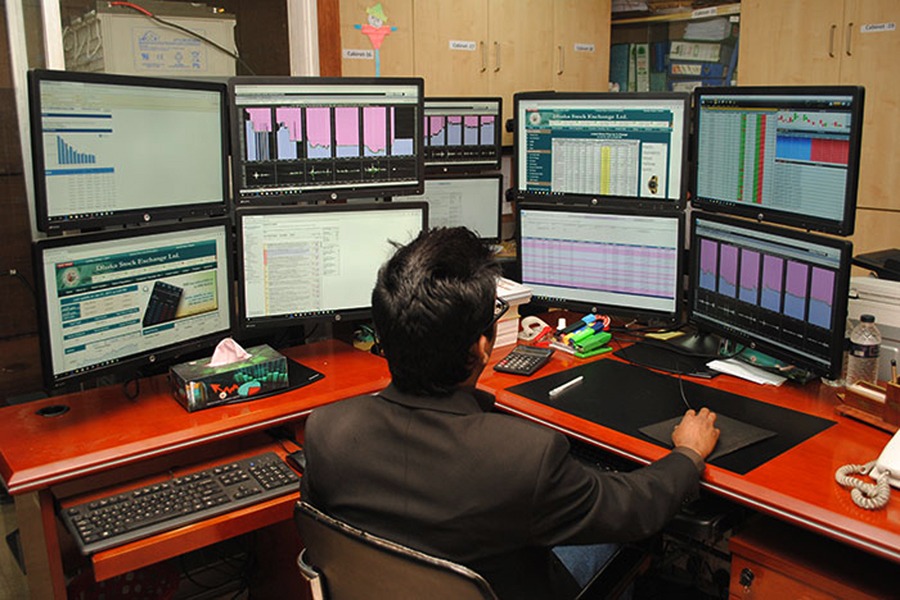Bangladesh’s capital market has become ‘casino’ over past 15 years: Amir Khosru

Published :
Updated :

BNP Standing Committee member Amir Khosru Mahmud Chowdhury has alleged that Bangladesh’s capital market has been reduced to a "casino" over the past 15 years.
He made the remarks on Saturday, at a policy dialogue organised by the DSE Brokers Association of Bangladesh (DBA), titled "Capital Market in Bangladesh’s Political Discourse: Philosophy and Practice", held at the Dhaka Stock Exchange office.
Dr Debapriya Bhattacharya presented the keynote paper at the event. Amir Khasru attended as a special guest, with panellists including BSEC Commissioner Md Mohsin Chowdhury, Jamaat-e-Islami Central Executive Council member Md Mobarak Hossain, Policy Exchange Bangladesh Chairman Dr Mashrur Riaz, ICMAB President Mahtab Uddin Ahmed, and NCP Joint Convenor Dr Tajnuva Jabin, among others.
Reflecting on past achievements, Khasru said, “There was a time when the capital market made good progress. There’s no need to elaborate on the last 15 years — everyone knows what has happened.”
He emphasised that for Bangladesh to advance, investment must be the foremost priority. “Ask me what matters most, and I’ll say: number one is investment, number two is investment, and number three is also investment. There is no alternative.”
Khasru stressed that both public and private investments should be financed through the capital market. “Government borrowing and private sector financing — both can be sourced from the capital market. Yet, we are chasing the IMF for a $4 billion loan. For a country, $4 billion is a trivial amount, yet we repeatedly turn to the IMF and World Bank for it.”
Highlighting global investment trends, he stated, “Globally, $100 trillion is allocated annually through capital markets, sourced from sovereign funds, insurance companies, and institutional investors. Vietnam alone accounts for $300 billion. I won’t even mention Bangladesh’s figure. If Bangladesh could attract even $100 to $200 billion, it would completely transform the investment landscape.”
Khasru underlined the need for political ownership of the capital market. “To bring the capital market under political ownership, monetary and fiscal policies must be harmonised. Political ownership is crucial, yet no one in Bangladesh wants to address this issue.”
Criticising the current state of the market, he said, “Bangladesh's capital market has become a casino — it is not a real capital market. A specific group acts as the casino owner. You enter, you play, some win, some lose — but ultimately, the house always wins. This is what has happened in Bangladesh, particularly over the past 15 years.”
Khosru also noted that many international investors he knows are eager to invest in Bangladesh but are waiting for a free and fair election. “Some of them manage $10 billion, others $20 billion. They’ve contacted me, expressing interest in investing in infrastructure, manufacturing, and services in Bangladesh.”
He concluded by questioning the government's dependence on external lenders. “Why should the government chase the IMF for just $4.0 billion? That’s nothing. Through a functioning capital market, Bangladesh could attract $500 billion annually. These funds are long-term and do not carry interest burdens — that’s the advantage of capital market financing.”
In his presentation, Dr Debapriya highlighted the consequences of a lack of accountability in the financial sector. “Without punishment, wrongdoing and corruption cannot be curbed,” he said. “We witnessed irregularities in the capital market in 1996 under political patronage, which drove thousands of people into financial ruin. Massive sums were withdrawn from the market, and no one was held accountable.”
He pointed out that the lack of justice in 1996 laid the groundwork for the 2010 crisis. “A politically backed syndicate withdrew Tk 20,000 crore from the market. Yet, no legal action was taken against those involved.”
Dr Debapriya noted that while some individuals involved in financial irregularities are now in prison, they are being held for other offences, not for their misconduct in the capital market.
Emphasising the importance of the capital market in the economy, he said, “Globally, capital markets play a key role in increasing savings, employment, investment, and efficiency. But in Bangladesh, the market has failed to fulfil these roles due to a lack of responsibility and governance from those in charge.”
He also questioned the regulatory capacity of the institutions responsible for overseeing the market, stating, “Those managing or regulating the capital market must ensure good governance. But in my view, they have failed. The market has outpaced its regulators. Unless more capable individuals are appointed to these roles, the situation will not improve.”
Warning of the worsening condition of the capital market, Dr Debapriya stressed the need for structural reform and inclusive dialogue. “We must not attempt to solve the problems of the capital market with quick fixes or superficial remedies. The IPO market has remained stagnant for a long time, and the index has declined significantly. These challenges require broad-based, inclusive efforts and consultations to resolve.”
farhan.fardaus@gmail.com


 For all latest news, follow The Financial Express Google News channel.
For all latest news, follow The Financial Express Google News channel.